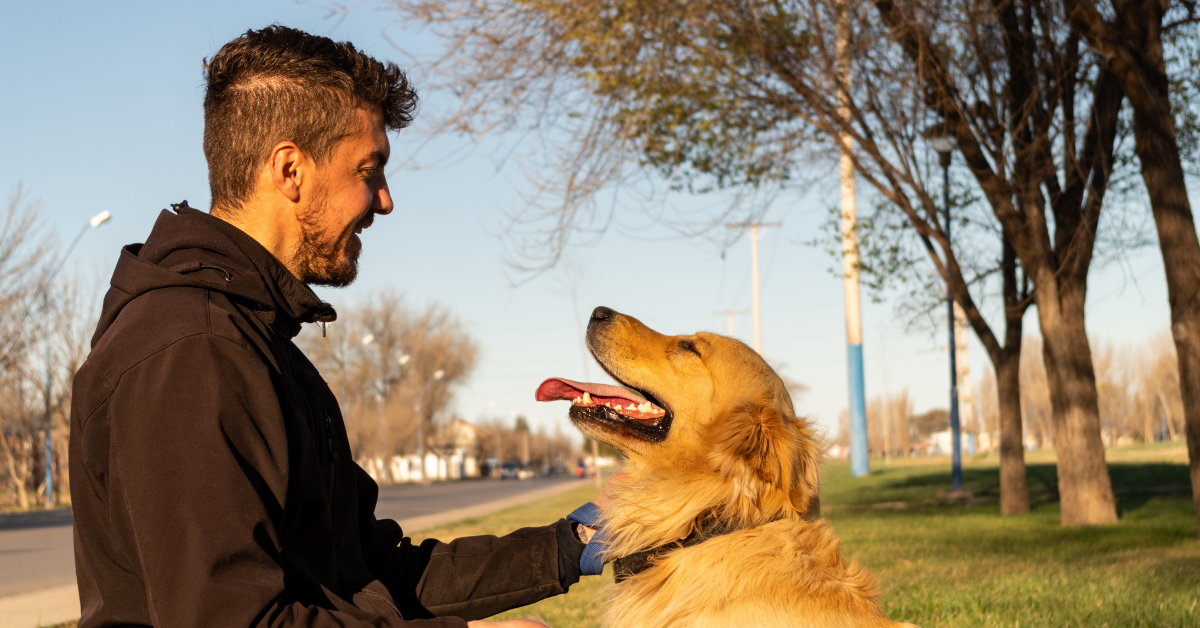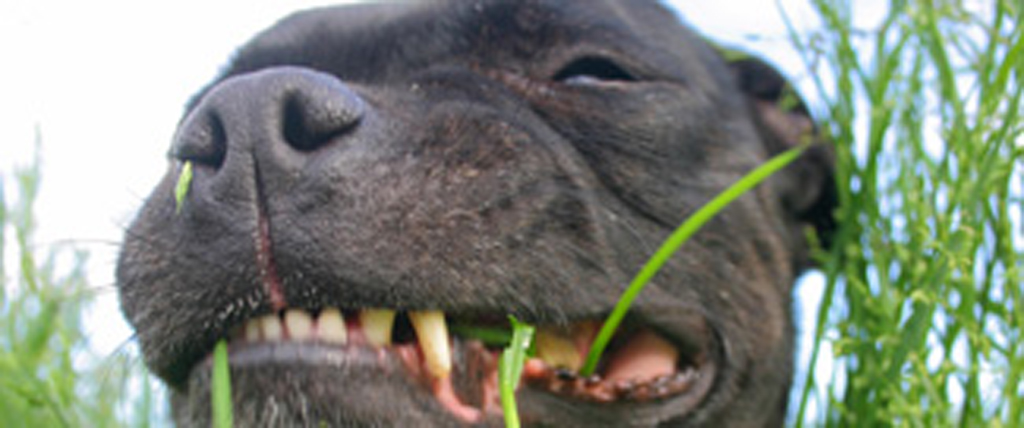Is your Dog A Grass Eater?
Why does my dog eat grass? Should I be worried? These questions come with a variety of possible answers: tummy upset, nutritional needs, improving digestion, evolutionary, and the list goes on. For those of us who own or care for dogs, I’m sure we have all witnessed a dog munching on grass. After doing a bit of research, it seems as though this is a very common question among dog owners, yet there isn’t a clear cut answer as to why.
We do know that dogs do not have the means to digest grass. The enzymes needed to break down the fibers are not present in a dog’s stomach. According to an article in Modern Dog magazine, “One reason for eating grass may be due to a feeling of nausea. It is possible that dogs learn this temporary solution for stomach irritation.” Some suggest the grass blades tickle the throat and stomach lining, causing the dog to vomit, particularly when the grass is is gulped down rather than chewed.
Dr. Barbara Royal states in her book, The Royal Treatment, “Dogs and cats may eat grass because the thick blades of grass in springtime smell like protein.” It is important your dog is receiving a good balance of nutrients in their diet. You can check out the nutrient matter of your dog’s food on www.dogfoodadvisor.com and follow-up with your vet to see if a change in food would benefit your pet.
Another theory why your dog may eat grass goes back to their ancestral past. Eating grass could help conceal their scent from prey, the same way they would roll themselves in feces. According to the Canine Journal, before dogs lived in the comfort of our homes, “…they naturally fed on anything they could scavenge and typically received the majority of their dietary needs from single prey items.” Dogs would eat almost every part of their prey, including the contents of the stomach, which may have contained vegetation.
If your dog chows down on a little grass, it most likely is not something to worry about. However, always keep an eye out for fertilizer and lawn care treatments that will harm your dog if ingested. It is always important to discuss your dog’s behavior with your primary veterinarian to ensure there are not any underlying issues.
Other Recent Blog POsts

Celebrating The Original Floofins’ Sweet 16
July 24, 2024
Emergency Planning for Your Home & Pet
July 18, 2024
Beyond the Blurry Phone Pic: Schedule Professional Pet Photos Instead
July 10, 2024
Keeping Chicago Pets Safe on the Fourth of July
July 1, 2024
Why Floofins & Co. Leads the Pack
June 26, 2024

